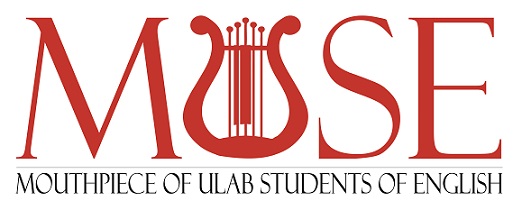Clinical Linguistics: Language as a Tool of Treatment
-Sharif Adnan
Language is considered a crucial human phenomenon without which it is almost impossible for a social being to go even for a single day. We have languages (both verbal and written), therefore, we are human beings.
In the 21st century, language is not only used as a medium of communication but also as a tool of treatment, almost like a medicine.
Don’t believe me?
Well, let’s start with a story.
When Bob Dylan was nominated for the Nobel Prize in literature (2016), one of the English newspapers decided to publish a cover story titled as “Cool as a Cucumber.” But later on, a Bangladeshi newspaper translated it into “শশার মতো ঠান্ডা,” which can be considered a semantic misunderstanding on the part of the reporter who chose to interpret it on a denotative level. However, this semantic error does not concern a clinical linguist. It is rather the psychological procedure working behind the very production of language itself which is the prime concern of clinical linguistics. For instance, if a person writes ‘শ..স..অ..অ..র ..ম..ত..টা ..ন..ঢা’ then s/he may be considered as a patient of Dysgraphia (i.e., writing problems) by a clinical linguist.
Clinical linguistics is a branch of applied linguistics which deals with linguistic theories in the field of speech and language pathology (SLP). It is a relatively new academic discipline that emerged largely during the late 1970s. The title ‘clinical linguistics’ itself indicates the inclusion of clinical imperatives and linguistics- two terms used in two different academic traditions. As a discipline, therefore, clinical linguistics wholeheartedly welcomes all sorts of research topics from both linguistics and medicine which consequently help to describe, analyze and treat language disability (e.g., aphasia, alexia, apraxia, dysarthria) in all its forms. As said David Crystal,
“[…] the application the theories, method, and findings of linguistics (include phonetics) to the study of those clinical situations where disorders of language are diagnosed and treated.” (02)
Without applying linguistic theories and methods, a clinical linguist cannot improve or offer proper treatments to a language-impaired person. Hence, it is valuable for linguistic science as well. In order to establish such practical implications, clinical linguistics-
# Focuses on both theoretical and practical knowledge.
#Analyses and treats language, speech, voice and speech problems through extensive medical practice.
# Contemplates the fundamental role of language and recognizes its importance for human communication.
# Includes disorders of all linguistics channels or modalities (e.g., speaking, listening, reading and writing).
# Analyses vegetative functions of human beings (e.g., swallowing problems) too.

According to these principles of clinical linguistics, language is a sign system interconnected with the body and the mind because when a person produces a speech, s/he has to subconsciously think about it first. Then, s/he has to produce it through vocal organs (e.g., larynx, glottis). Here, a language processing mechanism consists of a simultaneous involvement of two different steps such as a physical production of language (i.e., Broca area) and a cognitive comprehension of language (i.e., Wernicke’s area). Therefore, if an individual faces any disruption in terms of language production, a clinical linguist follows four steps-
Description:
To identify all syndromes, symptoms and characteristics of pathological linguistics behaviors
Diagnosis:
To indicate the classifications of linguistics behaviors medical syndromes, linguistics syndromes (e.g., phonemic, phonological, and syntactic) and other variables.
Assessment:
To assess how seriously the linguistics behavior is affected or deviates from the natural forms.
Intervention:
Finally, formulating a hypothesis for curing abnormal linguistics behavior.
To conclude, it can be added that as a decidedly chosen professional sector, clinical linguistics is a relatively new concept for most of the people of Bangladesh. A clinical linguist can even open his/her own private clinics to counsel and treat language impaired individuals. Also, what remains rather regrettably unknown is that as far as different areas of language activities are concerned, one can have numerous job opportunities with handsome salaries. For instance, experts in this field are highly required in different NGOs, government organizations, clinics, medical colleges and special education institutions. Hence, if you ask me, “supercalifragilisticexpialidocious,” indeed!

